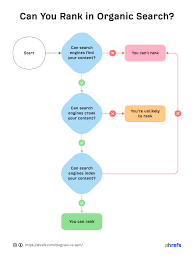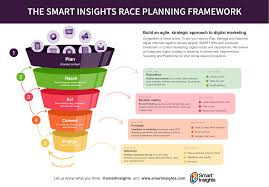Understanding the Meaning of SEO: A Comprehensive Guide

The Meaning of SEO – Search Engine Optimization
SEO, which stands for Search Engine Optimization, is a crucial aspect of digital marketing. It refers to the practice of optimizing your website and online content to improve its visibility in search engine results pages (SERPs).
Search engines like Google, Bing, and Yahoo use complex algorithms to determine the relevance and authority of web pages in response to a user’s search query. SEO techniques help websites rank higher in these search results, making them more likely to be seen by users.
There are two main types of SEO: on-page SEO and off-page SEO. On-page SEO involves optimizing elements on your website itself, such as content, meta tags, headings, and images. Off-page SEO focuses on external factors like backlinks, social signals, and online reputation.
Effective SEO can drive organic traffic to your website, increase brand visibility, and ultimately lead to higher conversion rates. By targeting specific keywords related to your business or industry, you can attract users who are actively searching for products or services like yours.
SEO is an ever-evolving field that requires continuous monitoring and adaptation to keep up with search engine algorithms and trends. Staying informed about the latest SEO best practices and techniques is essential for maintaining a competitive edge in the digital landscape.
In conclusion, SEO plays a vital role in helping websites reach their target audience and achieve their online goals. By implementing effective SEO strategies, businesses can enhance their online presence, drive traffic to their site, and ultimately improve their overall digital marketing performance.
9 Essential Tips for Mastering Search Engine Optimisation (SEO)
- SEO stands for Search Engine Optimisation.
- SEO is the practice of increasing the quantity and quality of traffic to your website through organic search engine results.
- Keywords play a crucial role in SEO as they help search engines understand the content of your website.
- Creating high-quality, relevant content is essential for effective SEO.
- Optimising on-page elements such as title tags, meta descriptions, and headings can improve your site’s visibility in search results.
- Building backlinks from reputable websites can boost your site’s authority and credibility in the eyes of search engines.
- Mobile-friendliness is important for SEO as more searches are now conducted on mobile devices.
- Regularly monitoring and analysing your website’s performance using tools like Google Analytics can help you make informed decisions to improve your SEO strategy.
- SEO is an ongoing process that requires patience and continuous effort to see long-term results.
SEO stands for Search Engine Optimisation.
SEO, short for Search Engine Optimisation, is a fundamental concept in digital marketing that focuses on enhancing a website’s visibility in search engine results. By strategically implementing SEO techniques, website owners can improve their chances of ranking higher in search engine listings, thereby attracting more organic traffic to their site. Understanding the significance of SEO and incorporating it into online strategies is essential for businesses looking to increase their online presence and reach a wider audience effectively.
SEO is the practice of increasing the quantity and quality of traffic to your website through organic search engine results.
SEO, or Search Engine Optimization, encompasses the strategic techniques aimed at enhancing both the volume and quality of traffic directed to a website via organic search engine results. By implementing SEO practices effectively, websites can improve their visibility and ranking on search engine results pages, ultimately attracting more relevant visitors who are actively searching for the products or services offered. This targeted approach not only boosts website traffic but also increases the likelihood of converting visitors into customers, making SEO a fundamental aspect of successful digital marketing strategies.
Keywords play a crucial role in SEO as they help search engines understand the content of your website.
Keywords are a fundamental element of SEO, playing a pivotal role in helping search engines comprehend the essence of your website’s content. By strategically incorporating relevant keywords into your website’s copy, meta tags, and headings, you can improve its visibility in search engine results pages. Search engines use keywords to match user queries with the most relevant web pages, making it essential to conduct thorough keyword research and optimization to enhance your website’s search engine ranking and attract targeted traffic.
Creating high-quality, relevant content is essential for effective SEO.
Creating high-quality, relevant content is a fundamental aspect of successful SEO strategies. Search engines value content that is informative, engaging, and tailored to meet the needs of users. By producing content that is both valuable and relevant to your target audience, you can improve your website’s visibility in search engine results pages. Quality content not only helps attract organic traffic but also encourages user engagement and establishes credibility for your brand. Therefore, investing time and effort into creating compelling content that resonates with your audience is key to enhancing your SEO performance and achieving long-term success online.
Optimising on-page elements such as title tags, meta descriptions, and headings can improve your site’s visibility in search results.
Optimising on-page elements such as title tags, meta descriptions, and headings is a fundamental aspect of SEO. By carefully crafting these elements with relevant keywords and compelling content, you can significantly enhance your site’s visibility in search engine results. Title tags and meta descriptions provide search engines and users with a brief summary of your page’s content, while headings help structure your content for better readability and keyword optimization. Paying attention to these on-page elements not only improves your site’s search engine ranking but also increases the likelihood of attracting organic traffic from users actively seeking information related to your website.
Building backlinks from reputable websites can boost your site’s authority and credibility in the eyes of search engines.
Building backlinks from reputable websites is a fundamental aspect of SEO strategy. By obtaining links from trusted and authoritative sources, a website can significantly enhance its credibility and authority in the eyes of search engines. Backlinks serve as a vote of confidence, indicating to search engines that the linked site is reliable and valuable. This boost in authority can lead to improved search engine rankings, increased organic traffic, and ultimately, greater visibility for the website.
Mobile-friendliness is important for SEO as more searches are now conducted on mobile devices.
In the realm of SEO, mobile-friendliness has emerged as a crucial factor due to the increasing prevalence of searches carried out on mobile devices. With a significant portion of internet users accessing information through smartphones and tablets, ensuring that a website is optimised for mobile viewing has become essential for improving search engine rankings. Websites that are mobile-friendly not only provide a better user experience but also stand a higher chance of attracting organic traffic, thereby reinforcing the importance of catering to the mobile audience in SEO strategies.
Regularly monitoring and analysing your website’s performance using tools like Google Analytics can help you make informed decisions to improve your SEO strategy.
Regularly monitoring and analysing your website’s performance using tools like Google Analytics can provide valuable insights that are essential for enhancing your SEO strategy. By tracking key metrics such as traffic sources, user behaviour, and conversion rates, you can identify areas of improvement and make data-driven decisions to optimise your website for better search engine visibility. This proactive approach to monitoring and analysis empowers you to adapt and refine your SEO tactics effectively, ensuring that your website remains competitive and relevant in the ever-evolving digital landscape.
SEO is an ongoing process that requires patience and continuous effort to see long-term results.
SEO, which stands for Search Engine Optimization, is a dynamic and ongoing process that demands patience and persistent effort to yield sustainable outcomes in the long run. It involves constantly refining website content, optimizing keywords, building quality backlinks, and staying abreast of search engine algorithms to improve visibility in search results. By investing time and dedication into SEO strategies, businesses can establish a strong online presence, attract organic traffic, and enhance their digital marketing performance over time.

